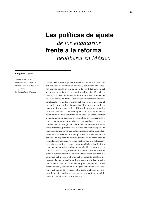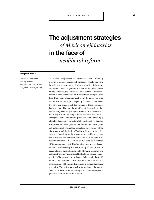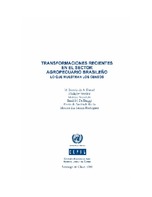Revista de la CEPAL
Desde 1988 el sector ejidatario mexicano se ha visto afectado
por una serie de cambios de política y perturbaciones exógenas
que han puesto en tela de juicio la viabilidad agrícola del
sector en su conjunto. Los cambios --liberalización del comercio,
privatización, reducción de los subsidios, eliminación
de los controles de precios, perturbaciones macroeconómicas,
devaluación y grandes reformas del marco legal que rige el
uso de la tierra en los ejidos-- han llevado a un reordenamiento




